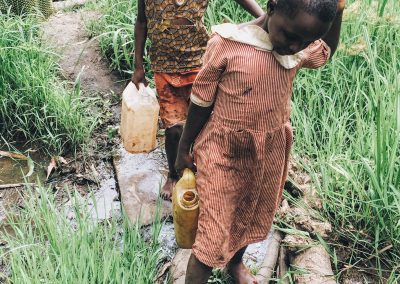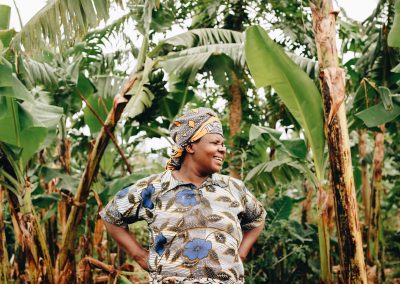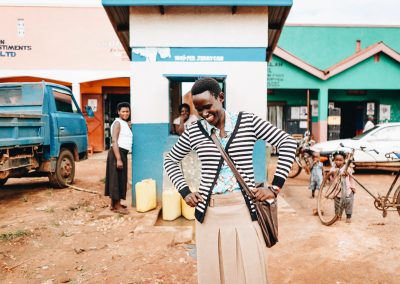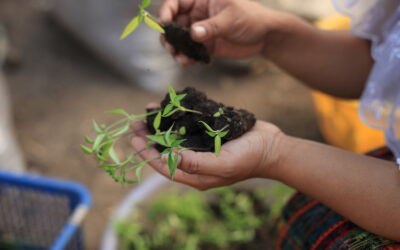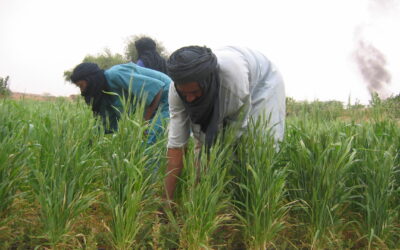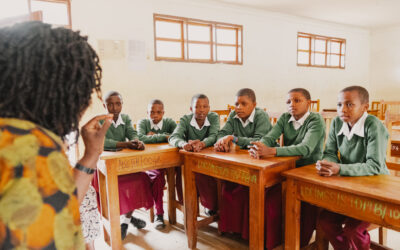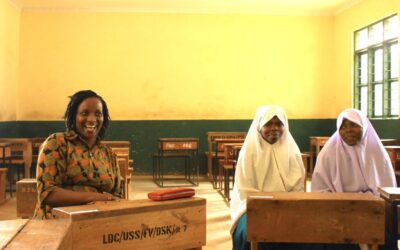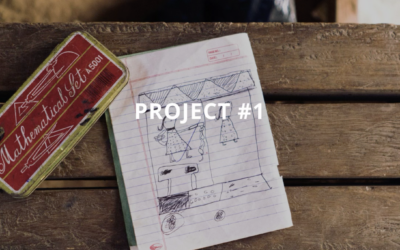Beyond Collecting Water: these women are making the water flow
Go to any well in Uganda, and you’ll probably notice that a majority of those standing in line to collect water are women and girls. On my recent trip to Uganda, this was certainly the case.
Collecting water is traditionally considered a woman’s role in Uganda. It may seem like a simple enough task, but for many women it can be very difficult. Wells are often few and far between, forcing women to walk long distances to collect it. That’s time that could be spent studying, earning income, or doing other important activities. Some women end up having to trek down dangerous paths to collect their water. And when no clean water source is close by, they might be forced to collect from a nearby source that isn’t clean–like a river or swamp–which can be contaminated with garbage, chemicals, as well as human and animal waste. You can imagine how dangerous that is.
You may have also heard the staggering statistic that 1 out of every 3 wells in Africa are broken.
This means that for 50,000 communities in Africa, their well doesn’t work. It was built, maybe by the government, or maybe by well-meaning charities, but it was not built with a long-term sustainability plan in place. Most of these wells break within the first few years because there are no spare parts, tools or mechanics nearby. This leaves women with the difficult task of finding another option to provide water for their families. And as we’ve seen, the options don’t look good.
So we could look at these problems as overwhelming, but at One Day’s Wages, we choose to look at them as opportunities.
Together with our partner The Adventure Project, we set out to provide 14,808 people in Uganda with clean water by restoring 36 wells, and creating 59 jobs in the process. During my trip to Uganda, I got to meet several people who took part in these projects, in particular, two women who were hired to help.
Ayisha
“Water is life,” says Ayisha, a Water Chairperson from the rural district of Kamwenge.
Ayisha’s job is to make sure people pay their monthly fees for using the water well in their neighborhood, and she also educates her community about why the well will improve their health and benefit their families.
Ayisha says there are a few families who use the nearby swamp instead of the well. The swamp is dirty, smelly, and used by pigs and cows upstream. Ayisha has seen many people become sick from drinking the swamp water, with such diseases as Typhoid. However, now that most use the well she manages, she’s noticed that very few people have become ill.
Ayisha’s role can be very challenging. She must work to convince her neighbors that contributing financially to the well is in their, and their community’s, best interest. The well is run like a business, where customers pay a very small fee each month to collect water. That fee pays for a well caretaker and mechanic to keep the well clean and working properly. This strategy means the well will flow for years to come.
Sometimes, however, it’s difficult to convince someone to pay for their water, when they can get it for free at a different well. That’s been an issue for some of the wells rehabilitated through these projects. Other well-intentioned NGO’s have donated wells to these communities, and they work great for a while, but then they break down because there was no sustainability plan put in place. This is why Ayisha’s job is so important, she must show her community that this well project is different, and that clean, sustainable water is worth paying for.
Ayisha explains that though her job is hard work and a time commitment, she enjoys helping her community. She’s proud of the fact that the community is learning from her. She’s also happy that she can provide clean water for her own family.
Patience
A mechanic is typically considered a man’s job–not just in Uganda–but in many places. Patience, a 21 year old female mechanic, breaks that stereotype.
Patience lives with her parents and siblings in Kamwenge. She’s a smart lady; finished in the top 5% of her class. She even attended a technical school to become a mechanic. Patience knows there are not many female mechanics out there, but she says that doesn’t mean more women shouldn’t strive to become them.
With the money she earns from her job as a mechanic, Patience was able to buy solar power for her and her parents. She is also helping her parents pay for her sibling’s school fees. It makes Patience happy that her parents have said they are proud of her, and she enjoys the positive feedback from her customers.
Not only does patience earn a living from her job as a mechanic, she’s also started a side business growing and selling produce. She’s planted a garden just below the well in her neighborhood, so that the runoff water from the well drips down into her garden, giving it plenty of water. Pretty smart.
Patience hopes to own her own hardware business someday with the income she is saving from her job as a mechanic and selling the produce. She says hardware is a lucrative business in her district. Clearly she has the skills and know-how to run it.
These are just two of the many stories of determined and courageous women I met while traveling in Uganda. These women often have to overcome incredible hardship and barriers in order to make positive change in their communities.
At One Day’s Wages, one of our core values is to empower women to be leaders and providers for their families and communities. It’s a role they often already have, we’re just trying to walk alongside them as they do it.
Share this story: [shareaholic app=”share_buttons” id=”26108403″]
More stories of impact
Climate & Poverty: How Do We Respond?
The mission of One Day’s Wages is to alleviate extreme poverty. While we can truly celebrate all the progress that has been made over the years, there is a looming threat to that progress: climate change. The World Bank estimates that another 100 million people could...
It’s Time We Rethink Orphan Care
Orphanages are often serving as a stopgap for families who are struggling in poverty. In Uganda, Harriet lives with her two daughters but struggles to provide for them. With no choice but to leave her abusive husband, Harriet did not have the means to provide food,...
Global Hunger: Toward an Integrated Response
The world has made a lot of progress toward reducing global hunger over the last century. Still, around 735 million people experienced hunger in 2022, and the numbers grew over the last few years due to conflict, climate change and COVID (FAO 2023). To work toward...
Tanzania Trip Reflection
Hello everyone! My name is Micah and I am the Operations and Projects Coordinator here at One Day's Wages. After getting the chance to go on a partner visit with my colleague Daphne, One Day's Wages' Grants Director, to Tanzania, I wanted to share my highlights and...
Investing in Education: An Interview with Theopista Seuya
Theopista Seuya is the Asante Africa Foundation Country Director for Tanzania. She holds a Master’s Degree in Education Policy and International Development from the University of Bristol, and previously served as a teacher, head of school, and university lecturer. ...
Celebrating 300 Grants!
One Day’s Wages began in 2009 with one small grant: $5,000 to help 200 displaced Burmese students attend school. This August, we reached the significant milestone of awarding our 300th grant! This most recent grant will build the capacity of 225 midwives to...
One Day's Wages is a grassroots movement of people, stories, and actions to alleviate extreme global poverty
©2022 One Day's Wages is a registered 501(c)(3) organization | Tax ID #26-2566653 | Privacy policy | Terms of use
P.O. BOX 17575 Seattle, WA 98127 | Contact us

